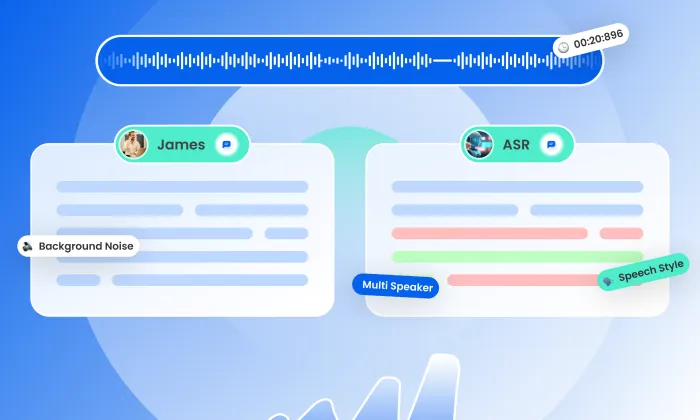Is medical terminology accurately captured in transcriptions for doctor–patient conversation dataset?
Transcription Accuracy
Healthcare
Speech AI
Accurate medical terminology in doctor-patient conversation datasets is vital for developing effective healthcare AI systems. These datasets serve as foundational training materials for applications in speech recognition, natural language understanding, and clinical decision support. Ensuring accuracy not only bolsters AI models but also enhances patient care outcomes.
Why Accurate Transcriptions Matter
Accurate transcriptions of medical terminology are crucial for several reasons:
- Clinical Relevance: Misinterpretations can lead to incorrect diagnoses or treatment errors. For instance, confusing "hypertension" with "hypotension" can have severe implications for patient safety.
- AI Training: AI models depend on accurate data to perform reliably in real-world scenarios. Precise transcriptions help models grasp medical language nuances, including jargon and context-specific phrases.
- Regulatory Compliance: Maintaining clinical accuracy while respecting privacy is essential under standards like HIPAA and GDPR. Accurate transcription supports compliance by ensuring sensitive information is handled properly.
Methodologies for Capturing Accurate Medical Terminology
Capturing accurate medical terminology involves several key methodologies:
- Realistic Simulations: Conversations simulate authentic clinical interactions under licensed physician supervision, preserving the relevance and accuracy of medical terms.
- Expert Review: Each transcription undergoes a dual-layer quality assurance process. Linguistic accuracy is first verified, followed by a medical expert review to ensure contextual appropriateness.
- Natural Speech Patterns: Transcriptions capture the natural rhythm of conversations, including pauses and overlaps. This holistic approach maintains context, crucial for accurate interpretation.
Challenges in Ensuring Accuracy
While striving for accuracy, several challenges arise:
- Speaker Variability: Diverse speakers can introduce variability in pronunciation or understanding. Balancing diversity with consistency is essential for robust AI models.
- Contextual Nuances: Medical terminology varies by specialty and region. Transcriptions must reflect these nuances while remaining broadly accessible.
- Realism vs. Control: Capturing spontaneous, unscripted conversations adds authenticity but increases the risk of inaccuracies. Balancing realism with accurate medical language is crucial.
Addressing Common Challenges
Even experienced teams can encounter challenges:
- Complexity of Medical Language: Medical terminology is layered and context-sensitive. Oversimplification can lead to ineffective training data.
- Diverse Accents and Dialects: Including diverse accents ensures models perform well across global patient populations.
- Thorough Testing: Real-world performance testing is crucial. Controlled settings may not reflect practical applications.
The Role of Simulated Conversations
Accurate transcription of doctor–patient conversations is a complex yet vital aspect of healthcare AI development. By employing rigorous methodologies, expert reviews, and understanding medical language nuances, teams can create datasets that truly reflect clinical dialogue intricacies. This enhances AI model performance and ultimately improves patient safety and care quality.
Simulated conversations provide realistic data without ethical and privacy concerns linked to real patient interactions, allowing AI models to learn from clinically valid dialogues while adhering to compliance regulations. Speaker diversity introduces variations in pronunciation and terminology. Including a range of accents and dialects in the dataset ensures AI systems can generalize better across different patient populations and clinical settings.
By focusing on these aspects, FutureBeeAI ensures that its datasets are not only accurate and reliable but also ethically sound and optimized for advanced healthcare AI applications.
What Else Do People Ask?
Related AI Articles
Browse Matching Datasets
Acquiring high-quality AI datasets has never been easier!!!
Get in touch with our AI data expert now!








